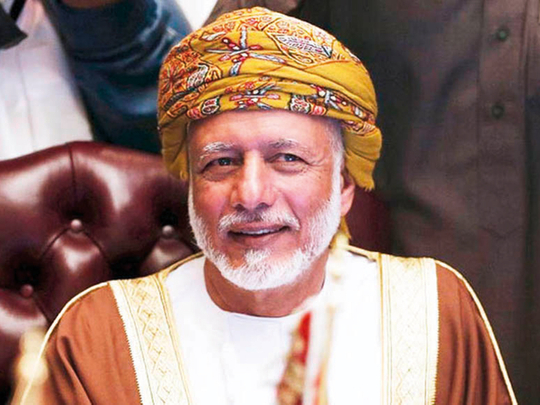
Muscat: Omani Foreign Minister Yousuf Bin Alawi has reaffirmed his country’s close ties with Egypt.
In a joint interview with the Oman News Agency (ONA) and Egypt’s Middle East News Agency (MENA) on the occasion of Egyptian President Abdul Fattah Al Sissi’s visit he said that his country viewed Egypt as “the pillar of the Arab nation, and today it is also the platform that brings the Arab nation together. Its role is recognised and is increasing”.
He added that Al Sissi, in his first visit to the Sultanate since taking office, had engaged in fruitful talks with Sultan Qaboos Bin Saeed. Both leaders spoke of Arab solidarity and expanding cooperation in all fields.
The minister stressed that relations between the two countries were constantly evolving and that both desire more cooperation and development. Oman and Egypt both support stability and peace in the Middle East and the wider world. He stressed that Egypt plays a fundamental role, especially on the Palestinian issue and other Arab causes.
“The Sultanate is, therefore, pleased with this historic meeting between the two leaders,” he said.
Commenting on Oman’s foreign policy, the minister said, “Our stance and principles are well-known; Arab issues are our issues. Our vision is the vision of the Arabs as we seek to achieve security, peace and stability. These principles underpin Omani politics. We believe the Arab world is facing a population explosion.” Speaking about Oman’s stance on the scourge of terrorism, Bin Alawi said it was clear that violence and extremism is now under control. But some violence will continue to plague the region as a result of the economic situation and population explosion. “We should look for the means that help and prepare the new generation of young people to work for development, and for building diverse communities,” he said.
He also stressed the importance of Arab solidarity and the role Egypt has played towards this end, especially in the Iran-Iraq war and the effort exerted for the liberation of Kuwait. He added that Egypt was at the forefront of Arab countries that called for concerted international effort to liberate Kuwait. He expressed concern about the current situation in the Arab world, especially the crises in Syria, Yemen and Libya. “Violence has begun to decline, but what after the violence? It is the major task facing Arab countries and peoples. “We should show some patience and not be in a hurry, in order to be able to control the issues consensually among all the Arab countries, and [to ensure that] what has been destroyed is rebuilt.”
On the upcoming Arab Summit in Saudi Arabia in March, the Minister stressed there was no doubt that Saudi Arabia would provide the appropriate environment for the meeting of the Arab leaders, and the future of the Arab solidarity and how to get rid of the effects of the so-called ‘Arab Spring’. He said in this regard that the Sultanate will always supportthe Kingdom.
Speaking about US President Donald Trump’s decision to recognise occupied Jerusalem as the Israeli regime’s capital, he said it was is a unilateral decision, and that occupied Jerusalem should be solved at the end of the negotiations and in the final agreement between Israel and the Palestinians. And that occupied Jerusalem was part of Palestine.











